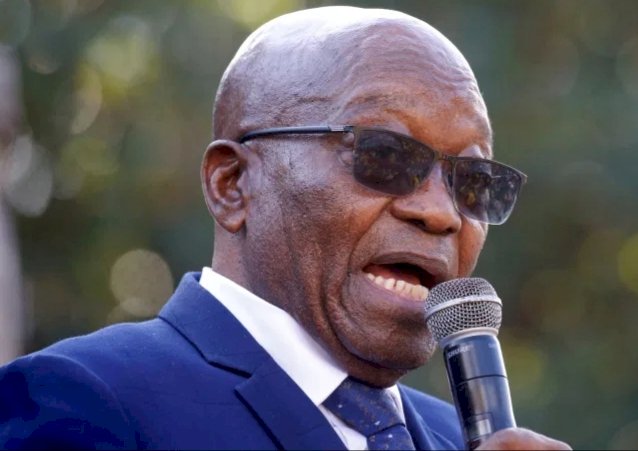South Africa: Zuma’s Corruption Case To Resume In Open Court
Former South African president will be allowed out of jail to attend the case in person.

Former South African President Mr Jacob Zuma will be allowed out of jail next week to attend a long running corruption case in person rather than by video link. The hearing, scheduled to resume in the southeastern city of Pietermaritzburg on August 10, shall proceed in an open court, Judge Piet Koen said on Wednesday. Zuma,
79, also began a 15 month jail term last month in an unrelated case, an event that also sparked violence and then looting. Shortly afterwards, he also appeared for the corruption trial via video link, although his lawyers complained the online format was unconstitutional and breached his right to face-to-face consultation with his
lawyers. Zuma faces 16 charges of fraud too, graft and racketeering related to the 1999 purchase of fighter jets, patrol boats and then equipment from five European arms firms when he was deputy president too. He is accused of taking bribes from one of the firms French defence giant Thales, and which has been charged with
corruption and money laundering. Next week’s hearing will start off with Zuma’s application to have the state’s chief prosecutor, Billy Downer, recused from the case on allegations of bias and then leaking information to the media too. Jacob Zuma’s Foundation welcomed Koen’s decision to also have the case heard in an open court.
Victory to the constitution, Now Mr Billy Downer, will also be processed properly”, the foundation then also tweeted. During the last sitting, Wim Trengove, a lawyer representing the national prosecution, rejected requests for Downer’s recusal as merely a ruse aimed at further delaying the case. Proceedings have been repeatedly postponed for more than a decade as Zuma fights a rearguard action to also have the charges dropped.
Zuma jailing
Jacob Zuma was ordered to serve a 15 month term for also refusing to testify to a commission probing state corruption under his presidency from the 2009 to 2019. Protests initially broke out too against President Jacob Zuma’s imprisonment but soon descended into rioting and looting too, with vigilante groups forming to protect
property. Major highways and rail routes were also shut down, while businesses were plundered and burned. The violence escalated into the worst unrest since the end of the apartheid, and prompting current South Africa President Cyril Ramaphosa to also label it an attempted insurrection. At least 337 people were reported
killed during the unrest. Trade Minister Ebrahim Patel on the the Thursday said that across the country looted businesses had suffered approximately five billion rand ($348m) in damages. The violence was also fanned by frustration at the persistently high unemployment rate and economic inequality in the country, exacerbated by the coronavirus pandemic.
